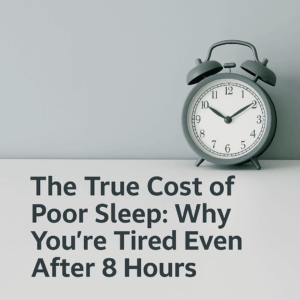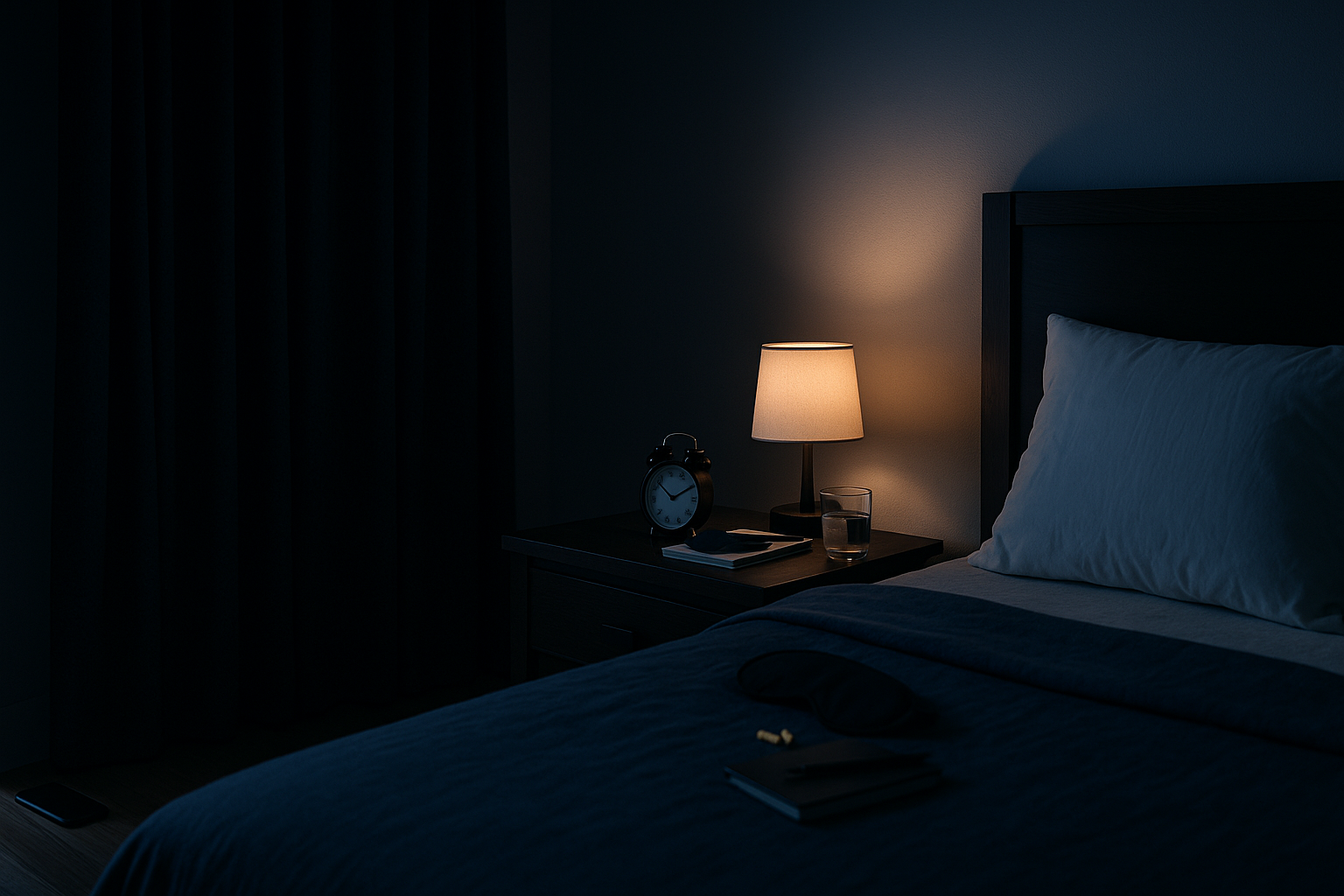The True Cost of Poor Sleep: Why You’re Tired Even After 8 Hours
I used to think sleep was a math problem: add more hours, wake up refreshed. It never worked. I would do eight hours in bed and still open my eyes heavy, foggy, and already behind. The problem wasn’t time. It was quality.
What “poor sleep” really costs
The cost isn’t just feeling tired. Poor sleep taxes your immune system, pushes stress hormones up, blunts focus, slows reaction time, and shortens your patience with people you actually care about. You pay for it at work, at the gym, in your relationships—quietly, every day.
Have you noticed this? You drink more coffee to push through, you snack late, you scroll more because you’re wired, and then the next night is worse. That’s not bad luck; it’s a loop.
Why eight hours still isn’t enough
Eight hours can still be bad sleep if your cycles are fragmented. Light leaks, late caffeine, blue-light exposure, alcohol “knockouts,” and a hot room keep you out of the deep, restorative stages. So you “sleep,” but you don’t actually repair.
Quality beats quantity when these three things line up:
- Timing: a consistent sleep window (same 60–90-minute corridor each night).
- Depth: fewer awakenings, more slow-wave + REM time.
- Signals: your brain gets the right “it’s night now” inputs: dark, cool, quiet, and low stimulation.
What most people get wrong
- They try to sleep longer instead of better. Extra hours in a noisy, bright, hot room don’t help.
- They chase hacks but keep late caffeine. Afternoon coffee hangs around longer than you think.
- They scroll to “switch off.” Blue light and novelty do the opposite.
- They nap too late or too long. A late, heavy nap steals sleep pressure from the night.
- They expect instant results. Your body learns patterns; give it a couple of weeks.
I made all of these mistakes. What finally worked was painfully simple—and repeatable.

What actually works (the simple stack)
- Darkness that’s real. Block light at the source. Cover LEDs. Use blackout curtains or a cheap sleep mask.
- Cooler air. Aim for a slightly cool room; a few degrees down often makes a big difference.
- A firm caffeine cut-off. If you struggle with sleep, make your last coffee early afternoon.
- Phones out. Charge your phone outside the bedroom. If you must keep it, use airplane mode and flip it face-down.
- A 10-minute brain dump. Pen and paper. Write down worries, to-dos, and “don’t forgets.” Close the notebook—tell your brain it’s parked until morning.
- Same window. Pick a realistic sleep window and protect it like an appointment. Consistency is the compounding interest of sleep.
None of these are heroic. They’re boring. And they work.
Try this tonight (tiny, real changes)
Pick one from each line:
- Light: turn off overheads 60 minutes before bed or wear a sleep mask.
- Stimulation: no social feeds the last 30 minutes; read 5–10 pages instead.
- Temperature: crack a window or lower the thermostat slightly.
- Mind: write three lines: “What I’m worried about,” “What I’ll do tomorrow,” “One thing I’m grateful for.”
You don’t have to fix everything at once. Stack small wins for two weeks and let your body recalibrate.
Morning matters too
Get natural light in your eyes soon after waking. Move your body—walk, stretch, a few push-ups. Hydrate before coffee. These early signals reset your clock and make tonight’s sleep easier before the day even starts.
When life gets messy
Bad nights happen—travel, kids, stress. Don’t try to “pay back” with noon megadnaps or 2 a.m. revenge scrolling. Keep your window, keep the basics, and your baseline returns faster than you think.
Ready to go deeper?
If you want something structured instead of random tips, I share a free 50% sample of my Sleep Mastery program that walks you through the exact routines and rules that helped me go from “always tired” to waking up clear.
Get the free Sleep Mastery sample
(If you try the changes above, tell me which one moved the needle for you. I actually read the replies.)
No spam. Unsubscribe anytime.

